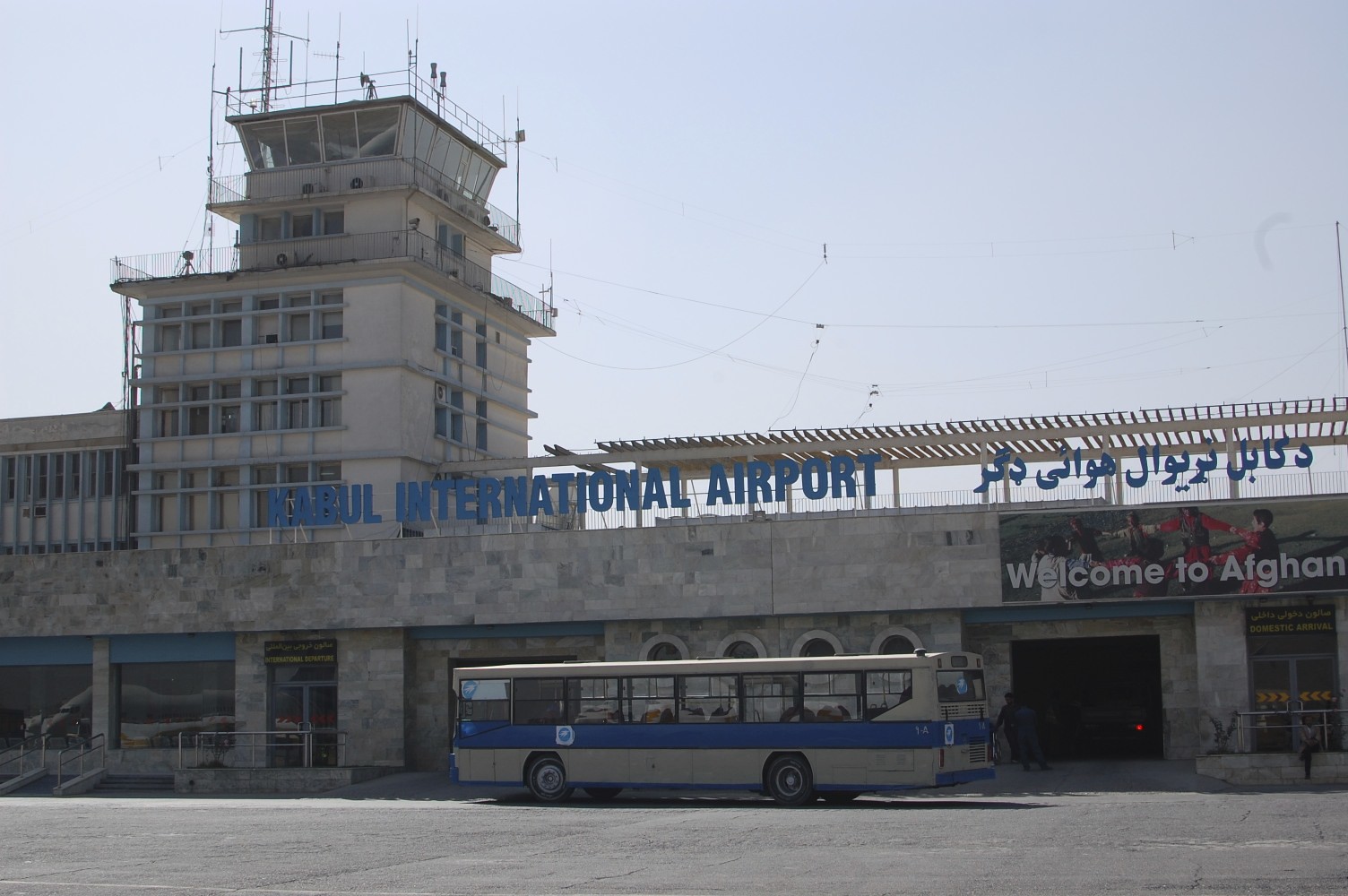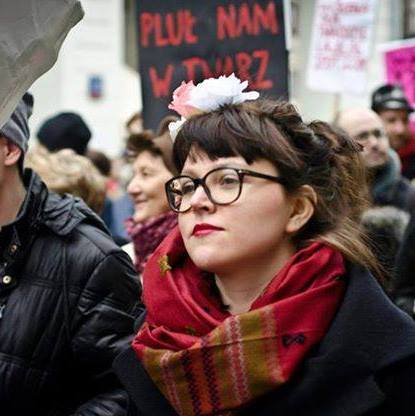
Kinga Stanczuk, who have contributed with several texts from Poland to Mänsklig säkerhet provides us here with a text on two Afghan sisters who fled from Kabul to Poland in 2021. Kinga have personally met these sisters who observes how both Poland and Afghanistan have suffered from Russian aggression.
During the memorable pandemic year 2020-2021, life in Kabul was far from normal. The city, with a population of over five million, had to accept numerous covid-related social distancing measures. Farwah, a 19-year-old university student, was obliged to stay home for the better part of the year, and as an outgoing, sociable spirit, she found this forced isolation as hard as any teenager would. Meanwhile, her older sister Marwah was finishing her business degree at a private university in Kabul and started getting her first job assignments. They lived together in a large family apartment in a calm residential area, at a comfortable distance from the city center.
August 15th, the day of the Fall of Kabul, become like September 1 for the Poles.
On that day, Farwah and Marwah* were both outdoors, far from their home when they heard the news that the Taliban had entered the city. Public transport was immediately paralyzed, so and they had to walk home, which took a couple of hours. The internet connection at the house was unstable, but a number of mobile operators still offered reliable internet.
-‘You’d expect them to cut off the internet at this point, but the Taliban are too incompetent to think of things like that. They operate with force, not strategy’ – explains Marwah.
The family agreed that the whole family had to leave as soon as possible; as the family of an anti-Taliban politician, they did not even consider staying in the country.
August 15th, 2021 seems to for many Afghans to compare with September the 1st, 1939 for many Poles: the end of the world as they knew it. As soon as the sisters reached the house, they started their frantic search for help: applied for visas, for help, for assistance. Most of the embassies shut down immediately, but Farwah’s family nevertheless decided that they wanted to escape legally, to seek official protection and complete all required documentation. The father of the girls, a district governor, had been killed by the Taliban several years before, and yet the family was not recognized by the American forces as in need of assistance.
- ‘A friend of my brother forwarded us a message from a Polish lady who was somehow involved with the evacuation process. We received an e-mail address, sent a simple message that we’re in danger and attached scans of our passports. After a couple of hours, we got an equally short answer. To our surprise, the answer was positive, even though our family has never worked with the Polish officials in any capacity.
-‘Unlike the Americans, the Polish army in Afghanistan helped everyone with either political or military background” – adds Marwah.
The sisters packed quickly, locked the house and sold their belongings for almost nothing.
They left the keys to the apartment and the car to a family friend who wasn’t planning on leaving Kabul. His job was to rent the family apartment and sell some of their furniture. He sold everything for a laughable sum.
– ‘All our belongings were sold for nothing. All of it.’ Later that day they finally reached the Kabul airport and looked for the Polish sector. The soldiers were handing away yellow vests for everyone who had an official title to be escorted by the army.
-‘Every now and then I still google these guys to check if they’re alright. We owe them a lot.’
Six hours later, they landed in Warsaw, Poland. As the sisters and their family arrived in Warsaw, they were required to stay eight days in the mandatory Covid-19 quarantine hotel near the capital. After that, they were transferred to refugee camps around the country. They were placed in a guarded facility in Dębak, a camp notorious for its poor living conditions.
-‘When we first came to Poland, the only thing we knew about the country was its role in World War II.’
As the sisters did not speak a word of Polish, the communication with the authorities was frustrating to say the least. Tears came to their eyes as they were describing the months in the camp.
-‘Our sister-in-law was heavily pregnant, our mother was ill, the conditions in the camp were dreadful. Marwah got bitten by some insects, got an infection, got so swollen up that her face was unrecognizable. We applied to be transferred several times, and eventually we were moved to a facility in the middle of the forest, near the Ukrainian border.’
The family waited around three weeks for the Polish residency documents to be issued
For some of their friends, the procedure took two years and more, so they had luck.
When the family in December 2021 had obtained their residence documents, they quickly found an apartment via a Facebook group and moved to Warsaw. The timing was indeed fortunate because since the Russian aggression on Ukraine in early 2022, the Warsaw housing market has become extremely competitive.
– ‘Landlords start acting funny when they discover we’re from Afghanistan.They want us to get a Polish homeowner to co-sign the tenancy agreement. How on earth could they expect us to find a Polish homeowner to randomly volunteer to do such a thing for an Afghan stranger?
I can’t help but admire their stylish manner and incredible, silent resilience. To spend time with the sisters to acquire a sense of inner peace against all the odds.
We did not trust our corrupt leaders
-‘How do I explain this to you… we’d always have this in the back our heads, that the Taliban were there, that their fighters were more or less active and that in some provinces they were, to some extent, actually popular. Roughly since the 2020 peace talks in Doha, with Russia, China, Pakistan and the U.S. representative for Afghanistan, Zalmay Khalilzad, we had a sense of going downhill, and that the Taliban rule would return one day. Our government was corrupt to the bone – everybody knew that – but there was still a sense that we could rely on the local government and the Afghan armed forces. It seemed like an absolute impossibility that the Taliban would gain control over the whole country in just a few weeks’.
At this point Farwah gets angry, too.
-‘Have you ever wondered how the Taliban could enter so easily? Because there was no one left on the ground! Our president, Ashraf Ghani, left on the 15th, in the morning. He took his money and flew off to Uzbekistan. We had a serious army, trained soldiers; the kind of army that the Taliban couldn’t possibly overcome with some motorcycles and kalashnikovs. We were sold, sold as a country, as a people, by our own leaders’. There have been anonymous leaks ever since the takeover. Documentation has been published showing that Ashraf Ghani accepted large payoffs from the supporters of the Taliban. The fact is: no one fought for this country, the Taliban took each and every city just like that.’
Farwah is also worried about Ukraine.
-‘You can’t ignore what’s happening now in Ukraine.
Everyone has seen Russia for what it is, Putin for who he is. Our experience shows that we can’t trust NATO, we just can’t do it. I don’t think about it all the time, but I’m worried, I strategize in my head. What do we do if the Russians win in Ukraine and enter Lithuania, and then Poland? As an Afghan I won’t have any legal title to protect me. I’m trying to think in advance, to be prepared. My grandmother always told me to be scared of the Russians: their army and the hunger that follows them.’ As Farwah said that, I remembered that’s exactly what my grandmother would always tell me when I was a child. ‘Eat up your dinner! And learn to hide food. I used to hide all my food under the bed for when the Russians come!’
I’m struck again by how similar our deep, intergenerational memory seems to be; after all, our grandmothers taught us to fear and oppose the same former empire.
I ask the sisters about their plans now that they have settled in Warsaw.
‘Most of us want to work, but many Afghan women don’t know Polish and won’t learn it easily, they have children, family obligations. Ukrainian and other East-European migrants are generally preferred to Central-Asian candidates. I want to have my own business and give Afghan women the jobs they need.’
Although the sisters feel at home in the increasingly multicultural capital city, they constantly feel judged: on the bus, in the post office, in a job interview. ‘I’m judged by Poles for being Muslim and for being Asian; and at the same time I’m judged by my own diaspora for not being a good enough Muslim. Strangers would send me messages about how an Afghan woman should live. I don’t wear a hijab. I attend university. I’m so tired of this constant criticism from both sides. I’m an adult, it’s really nobody’s business how I live my life.’
Here, here. On that note, I raise a quince liquor toast to them.
‘Inshallah. Wasze zdrowie!’
*The names of the sisters and other protagonists have been changed at their request.
Kinga Stanczuk, teacher, free-lance writer
Editor: Gerd Johnsson-Latham


Lämna ett svar